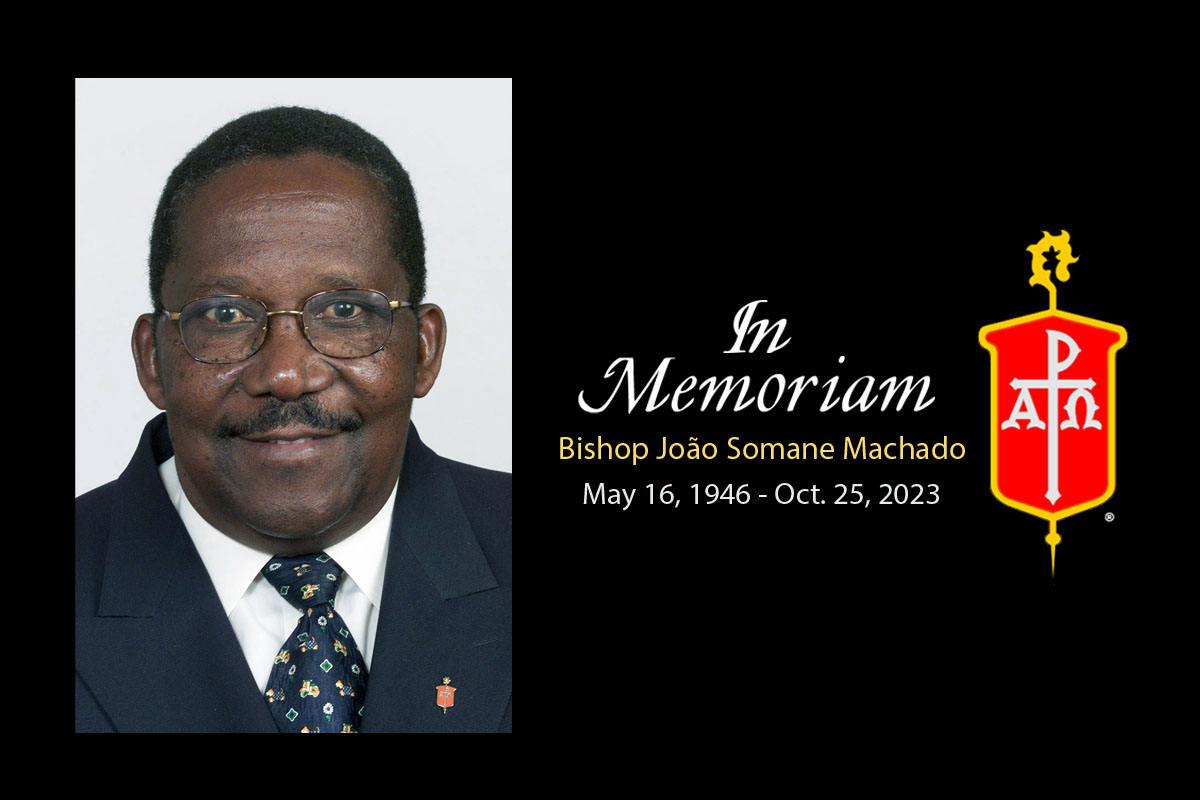Key points:
- Mozambique’s third bishop is being remembered as a “statesman of integrity” who mentored many young people and contributed to the growth of The United Methodist Church.
- Machado promoted the call of women to ministry and ordained the first female pastors in the denomination in Mozambique.
- Friends and colleagues say he treated everyone like family and many looked up to him for guidance, including other African bishops.
- The retired bishop also had an infectious laugh that helped to overcome tension during intense discussions.
Retired Bishop João Somane Machado of the Mozambique Area is being remembered as a father figure with an infectious laugh who contributed immensely to the growth and development of The United Methodist Church in Africa and globally.
Machado died Oct. 25 in Maputo, Mozambique, at the age of 77.
“Machado was a father who could not choose between privileged and underprivileged children. He was a father who would not see me as a pastor but as his child,” said the Rev. Filipe Hoguane, the director of Cambine Theological Seminary in Mozambique.
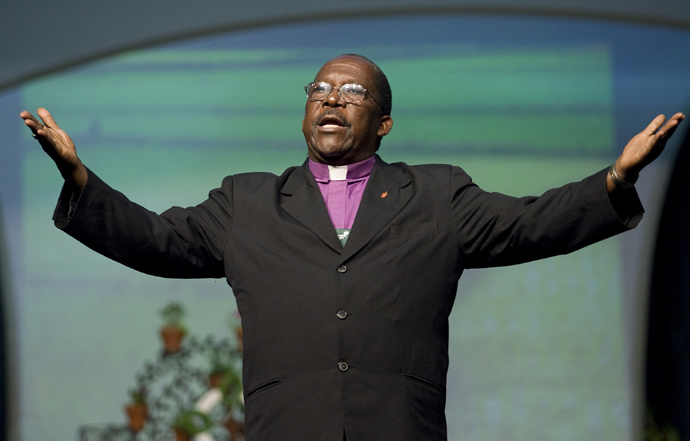
The bishop’s major achievements include the ordination of the first women pastors in Mozambique and being part of a group of church leaders that engaged the rebel Resistencia Nacional Mocambicana (Renamo) insurgents to end the 15-year civil unrest and restore peace in Mozambique in 1992, Hoguane said.
“Machado’s tenure also witnessed the growth of the church into two conferences: Mozambique North and Mozambique South,” he said.
The third United Methodist bishop for Mozambique, Machado is credited with promoting and supporting the education of young people and the establishment of a school in Tete Province that was befittingly named Bishop João Somane Machado Secondary School.
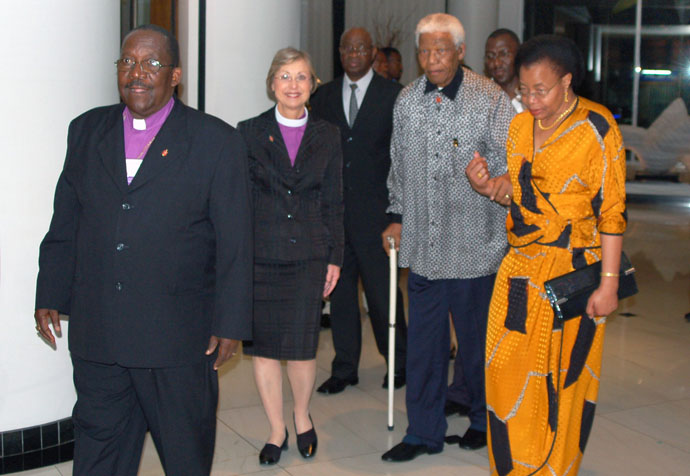
Bishop Joaquina F. Nhanala, who leads the Mozambique Area, described Machado as a teacher and mentor who expanded the church to new areas in the country.
“He was an advocate for women’s ministry and served the country and beyond the borders. He was an example of making the world his parish,” said Nhanala, the first and only female United Methodist bishop in Africa.
The Rev. Andre Viera, a lecturer in the faculty of theology at Quéssua Mission in East Angola, said he first met Machado when the first bishop of his conference, Moisés Domingos Fernandes, retired.
“Machado stepped in for about three years till the election of Bishop Jose Quipungo. During that time, he helped the conference to grow and established the school of theology and the pastors school in Quéssua,” Viera said.
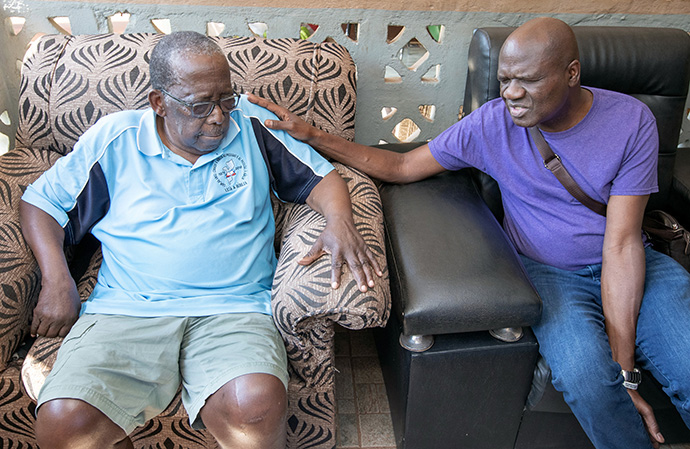
Wehnam Dabale, Africa University director of alumni, internationalization and church relations, described Machado as “God’s general, an educationist and contextual theologian.”
“He stood by the institution from its formative stages and believed that with institutions like AU, Africa’s unity is secured. During his tenure, he sent a lot of young men and women to study and most of them are now leaders in the Mozambique church, government and private organizations,” Dabale said.
Retired Bishop Ntambo Nkulu Ntanda of the North Katanga and Tanganyika areas said Machado was a “statesman of integrity” who left a good model for all African bishops.
“He was development-minded and he lived his life for the Mozambican people and The United Methodist Church. He had a lot of wisdom and he kept the church united,” Ntambo said.
He credited Machado with the creation of the Hope for the Children of Africa initiative, which raised funds to build schools in Africa.
“Bishop Machado was a true church leader who worked for his church and died serving it. He was a patriot and I loved the way he would collaborate with newly elected bishops and take them under his wing. I thank God for his life,” Ntambo said.
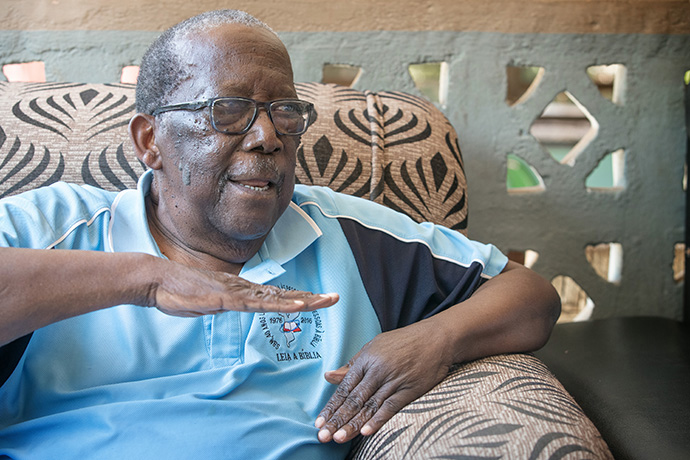
Machado was born May 16, 1946, in Cambine in the Morrumbene District in the Inhambane province. He attended primary school in Cambine, then later went for teacher training.
He attended the Methodist University in Sao Paulo, Brazil, from 1975 to 1978, where he obtained his bachelor's degree in theology. He earned a master’s degree in theology in Kinshasa and returned to Mozambique, where he served as assistant pastor at Malhangalene United Methodist Church in Maputo. At the same time, he was assistant to the late Bishop Almeida Penicela.
Machado was elected to the episcopacy in 1988 in Lubumbashi, Congo, and served as the bishop of The United Methodist Church in Mozambique and South Africa until 2008, when he retired after almost 20 years of ministry and service.
Retired Bishop David K. Yemba of the Central Congo Episcopal Area, said he was heartbroken by Machado’s passing. The two first met when Machado enrolled to study at the then Faculty of Protestant Theology in Kinshasa, Congo.
“Knowing that he was from a Portuguese-speaking country, he amazed his lecturers by becoming proficient in French after a short, intensive language course. He also became fluent in Lingala (the local language) while serving in our churches. He was a person who easily made friends in communities where he lived and served.
Subscribe to our
e-newsletter
“As bishop of the church, his strong leadership impacted so many lives across the connection and he represented the Council of Bishops when he presided over the episcopal election in Kamina, Congo, in February 2005,” Yemba said.
He remembered Machado as a great leader who traveled extensively and served the church tirelessly and uplifted the image of The United Methodist Church wherever he was called to perform missional and ministerial duties.
Zimbabwe Area Bishop Eben K. Nhiwatiwa, Africa Colleges of Bishops president, said the former Mozambique bishop was a great leader.
“Bishop Machado was in the class of our spiritual fathers in the central conferences in Africa. For us in the Zimbabwe Episcopal Area, he responded to the call by the general church to provide leadership at the time of need. He gave the area superb leadership,” he said.
One of the younger generation of pastors who looked upon Machado for fatherly guidance and love was the Rev. Lloyd T. Nyarota of Zimbabwe, who is currently serving at St. John’s United -Anglican Church in Canada.
He recalled an incident in 2004 when he traveled to Mozambique for the funeral of a fellow student from Africa University.
“Bishop Machado, on learning that I had traveled from Zimbabwe, personally made arrangements for me to be comfortable, safe and fed. I was humbled by the bishop's love. Machado treated me as a son and he would always tell me I was both Zimbabwean and Mozambican as he had adopted me. The church has lost a father, a leader and a loving bishop,” Nyarota said.
“During Africa Central Conference meetings, Machado would always ease tensions on difficult matters. The bishop would tell a joke and he would laugh out loud and everyone in the room, if not laughing at the joke, would end up joining in his laughter,” he said.
Armindo Mapoissa, Young People’s Ministries and Volunteers in Mission coordinator in the South Mozambique Conference, said Machado recommended his appointment in 2004 to be the first young adult representing Africa in Discipleship Ministries’ division on ministries with young people.
“Machado was a father to me; he advised on how to be a good leader. He always urged me to be transparent. I will remember him as a good leader, a servant and humble leader, a father, an advisor, a mentor, a great preacher, a man of peace and truly a man of God,” said Mapoissa, who also serves as institutional and church development officer for the conference.
Bishop Daniel Wandabula, Africa Central Conference college of bishops president, said Machado possessed great leadership, wisdom and knowledge, which led to fruitful deliberations and outcomes during conference sessions.
Machado served as interim bishop in East Africa after the death of Bishop Alfred Ndoricimpa in 2005. “Within that short time, he was able to organize a special session of the annual conference where he ordained pastors. He later organized another annual conference in Burundi’s capital, Bujumbura, where we nominated elders whose names were to be sent to the special session of the Africa Central Conference in Mutare, Zimbabwe, in 2006. I am happy that it is through his efforts that I was elected bishop of East Africa,” Wandabula said.
He said Machado also will be remembered for his sacrifice and commitment to the Imagine No Malaria campaign, which was aimed at eradicating malaria from the African continent and reducing the number of children and pregnant mothers dying of malaria.
“Through his dedication and our combined effort, the Imagine No Malaria campaign was able to supply mosquito nets to millions of people in Africa,” Wandabula said.
“Machado was one of those bishops through whom you would see the real image of God. He was the kind of person who reflected the love of God to both church and neighbor. He would not hold any bitterness even when he was wronged.”
Machado is survived by his wife, Nocia Madonela Machado, two children and 12 grandchildren. He will be buried in Cambine on Oct. 31.
Chikwanah is a correspondent for UM News based in Harare, Zimbabwe.
News media contact: Julie Dwyer at (615) 742-5470 or newsdesk@umnews.org. To read more United Methodist news, subscribe to the free Daily or Weekly Digests.

